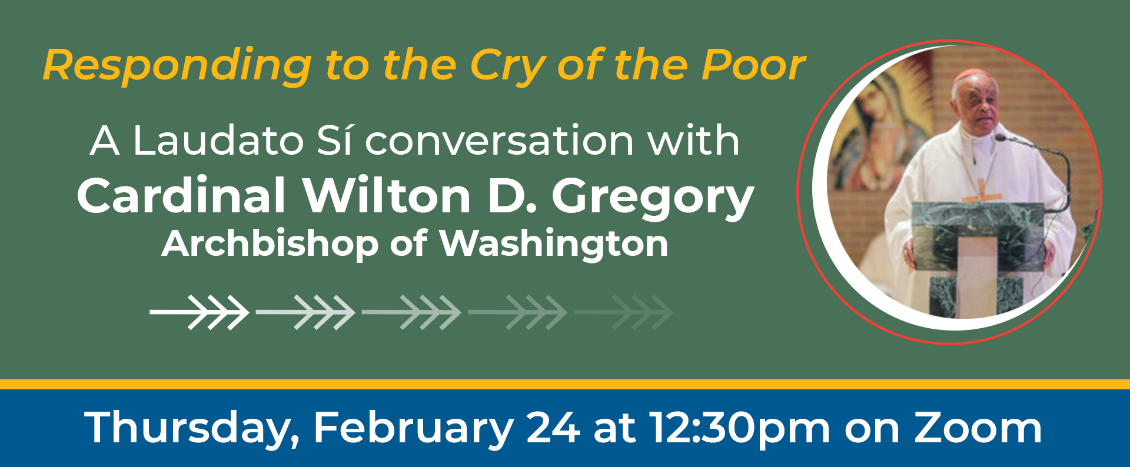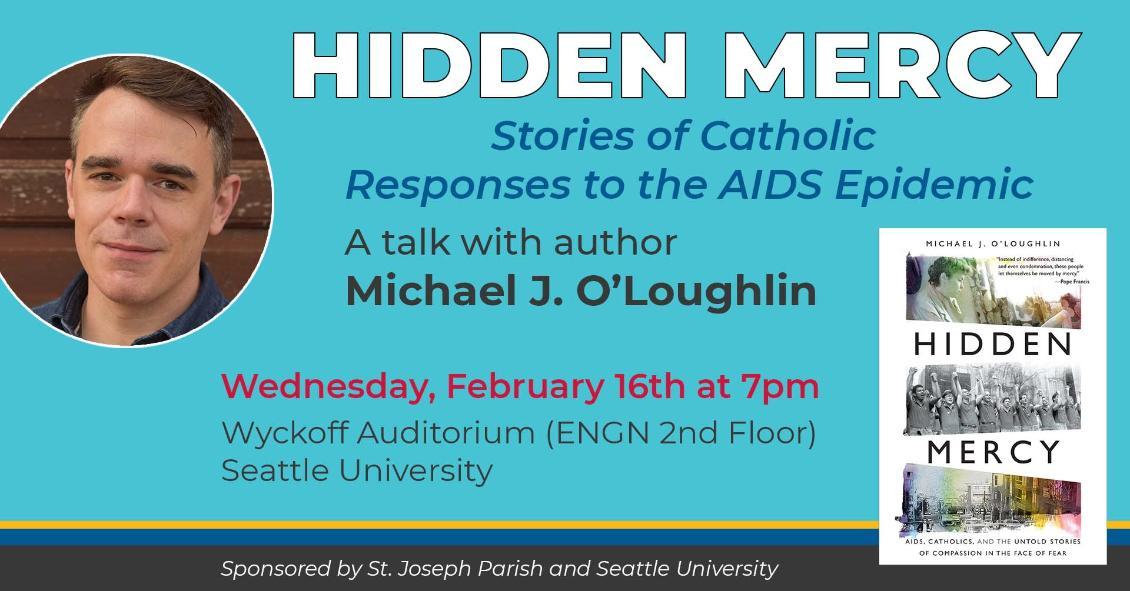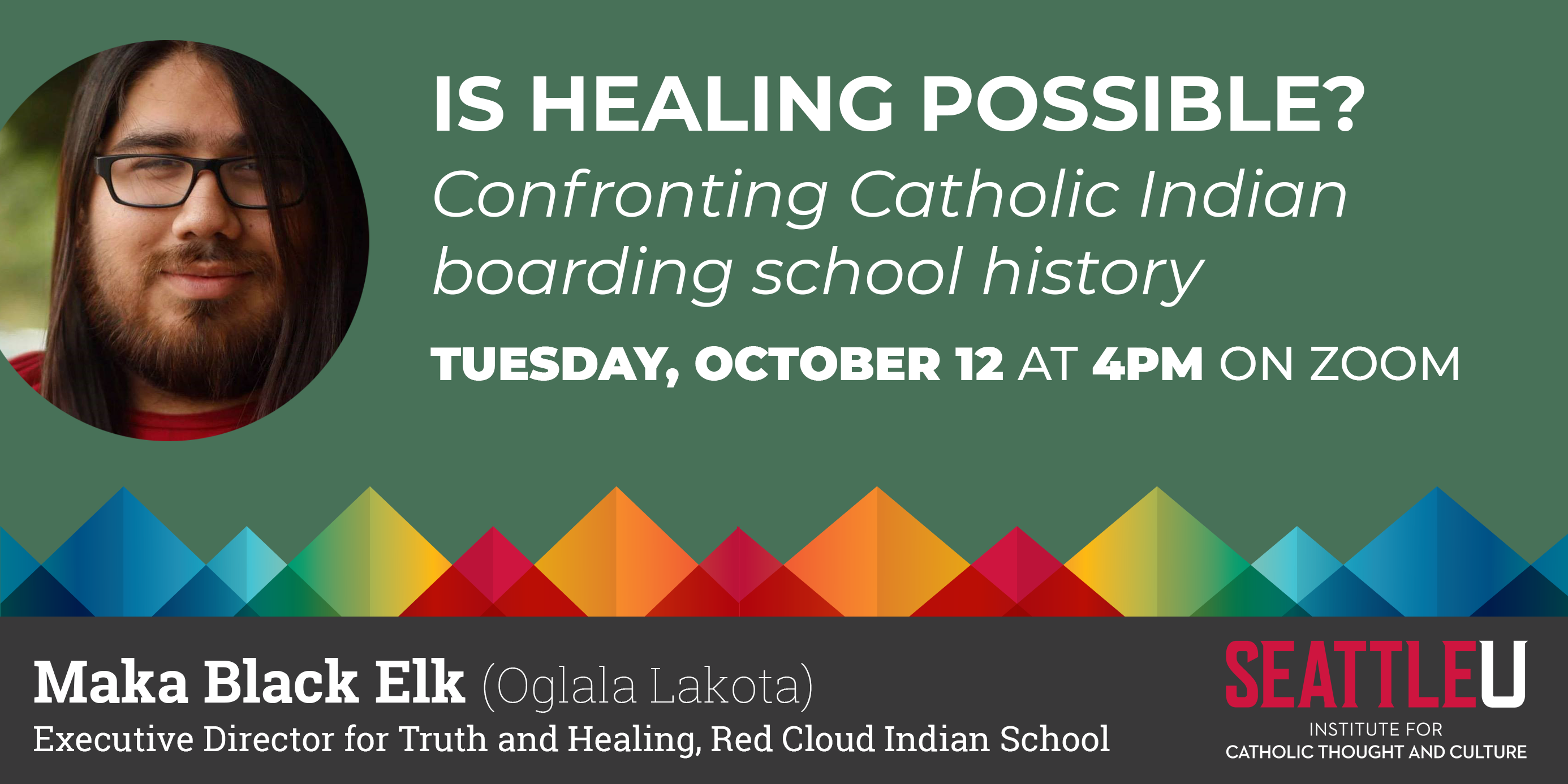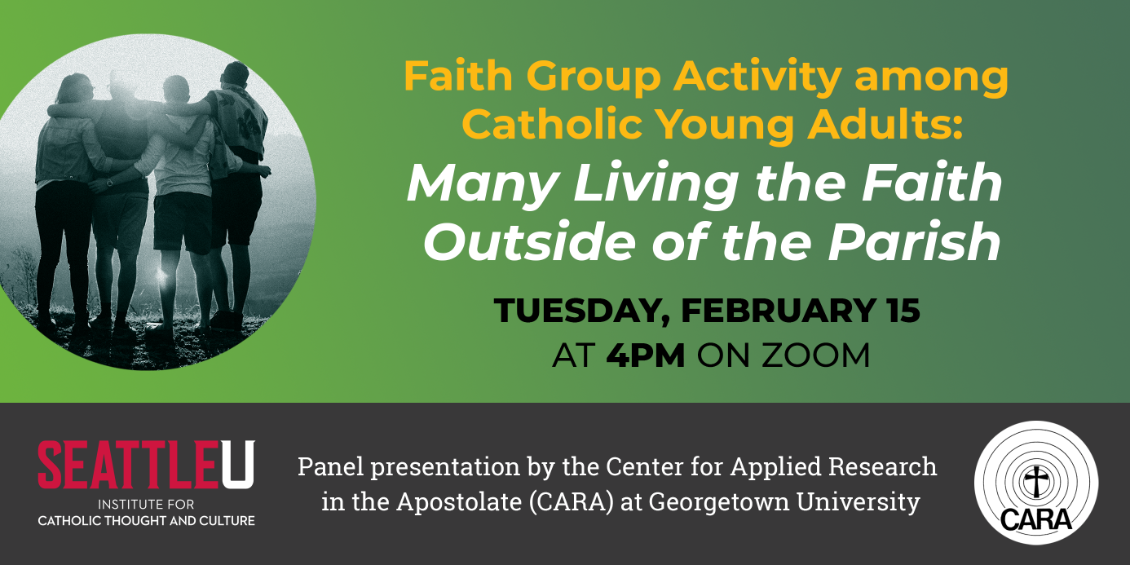
2021-22 Events
SPRING 2022:
 Gospel Leadership Among Roman Catholic Women
Gospel Leadership Among Roman Catholic Women
Tuesday, May 17, 12:30-2pm
Student Center 130
Jeanette Rodriguez, PhD, Professor, Theology and Religious Studies and ICTC Director, and Sharon Callahan, EdD, Professor Emerita, School of Theology and Ministry, present on their research “Gospel Leadership Among Roman Catholic Women.”
This presentation considers the priestly leadership some women offer their faith, local and institutional communities. Grounded in deep spirituality, the over 40 women we interviewed and studied evidence the four ministries valued by the early church: Kerygma, Koinonia, Diakonia, and Leiturgia. In addition, the women demonstrated new ecclesiologies offering ecumenical and prophetic contributions to the institutional church and the people of God.
WINTER 2022:

Responding to the Cry of the Poor: A Laudato Si' conversation with Cardinal Wilton D. Gregory, Archbishop of Washington
Thursday, February 24 at 12:30pm on Zoom
Cardinal Gregory was named the first African American cardinal in November 2020. He has spoken extensively on race relations and divisions within the church, the sexual abuse crisis, and the importance of Pope Francis' work on environmental justice.
Cardinal Gregory currently serves as a Member of the Vatican Dicastery for the Laity, Family and Life and on the Board of Trustees for the Papal Foundation. Additionally, he is the Catholic Co-Chair of the National Council of Synagogues consultation for the United States Conference of Catholic Bishops (USCCB). Read more about Cardinal Gregory here.

Hidden Mercy: Stories of Catholic Responses to the AIDS Epidemic
A talk with author Michael J. O'Loughlin
Wednesday, February 16 at 7pm
Wyckoff Auditorium (BANN 2nd Floor), Seattle University
Co-Sponsored by St. Joseph Parish
*Livestreamed at www.youtube.com/c/StJosephParishSeattle
About Hidden Mercy:
Set against the backdrop of the HIV and AIDS epidemic of the late twentieth century and the Catholic Church's crackdown on gay and lesbian activists, journalist Michael O'Loughlin searches out the untold stories of those who didn't look away, who at great personal cost chose compassion—even as he seeks insight for LGBTQ people of faith struggling to find a home in religious communities today.
Michael J. O’Loughlin:
Michael J. O’Loughlin is an award-winning journalist and national correspondent for America Media. He is the host of the New York Times recommended podcast Plague: Untold Stories of AIDS and the Catholic Church, which was honored with awards from the National LGBT Journalists Association and the Religion News Association. Prior to joining America, O’Loughlin was a national reporter for The Boston Globe.
Learn more about Hidden Mercy and Michael J. O'Loughlin here!
Faith Group Activity among Catholic Young Adults: Many Living the Faith Outside of the Parish
Panel presentation by the Center for Applied Research in the Apostolate (CARA) at Georgetown University
Tuesday, February 15 at 4pm PST on Zoom
Recent research shows young adult Catholics are more engaged with their faith than thought, but it is outside of the local parish. How does this impact parish life? Join CARA researchers as they discuss their recent findings in the report "Faith and Spiritual Life of Catholics in the United States."
Panelists:
- Claudia Avila Cosnahan, Mission & Partnerships Director for Commonweal and an instructor and consultant for the Archdiocese of Los Angeles.
- Dr. Mark Gray, Director of CARA Catholic Polls (CCP), Senior Research Associate
- Dr. Hosffman Ospino, Associate Professor of Hispanic Ministry and Religious Education Chair, Boston College
- Darius Villalobos, Director of Diversity and Inclusion at National Federation for Catholic Youth Ministry
Report Summary:
This report presents findings from a study about faith and spiritual life of Catholics in the United States (especially, Hispanics/Latinos and youth/young adults) to help better understand their spiritual needs and how existing spiritual formation programs cater to these needs. The report is based on the national poll of young Catholics, national survey of Small Christian Communities, and interviews about Small Christian Communities. Read the complete report here, and view a presentation here.
The Center for Applied Research in the Apostolate is a non-profit research center that has been conducting social scientific studies about and for the Catholic Church, since 1964. CARA’s mission has three aspects: to increase the Church’s self-understanding, to serve the applied research needs of Church decision-makers, and to advance scholarly research on religion, particularly Catholicism.

FALL 2021:

Is Healing Possible? Confronting Catholic Indian Boarding School History
Maka Black Elk (Oglala Lakota), Executive Director for Truth and Healing, Red Cloud Indian School
Tuesday, October 12, 4-5:30pm PST on Zoom
Prior to entering this discussion participants are encouraged to watch this brief explainer video on the harms and legacy of Indian boarding schools in the United States.
The history of Indian boarding schools in the United States exemplifies a longstanding erasure of the experiences of American Indian nations. The Catholic Church and other Christian denominations, with the support of federal dollars originally meant for individual Indian families, operated hundreds of boarding schools in the late 19th and early 20th centuries. Critical to the foundation of these schools was the systemic suppression and eradication of native languages and culture. Many Native American children suffered from physical, mental, and sexual abuse, separation from family, loss of culture and language, and even death.
This conversation will bring this history into perspective as the experience of one particular former Indian boarding school is shared and discussed. The Society of Jesus was one of many Catholic orders that ran some of these schools including the one highlighted here. This dialogue is focused on understanding that history, facing the challenges produced by that history, and seeking to understand what the future might hold for the possibility of healing. Questions that will be pondered include: What must the Church do to reckon with this history? How can we imagine a Catholic faith that rejects the colonial project?
Maka Black Elk (Oglala Lakota) is the Executive Director for Truth and Healing at Red Cloud Indian School, formerly known as Holy Rosary Mission, on the Pine Ridge Indian Reservation in South Dakota. Red Cloud is one of the few remaining Jesuit schools serving an indigenous community in the country. As an alumnus of Red Cloud, Maka continued his Jesuit education at the University of San Francisco. He returned to Red Cloud after earning his master's in Peace and Human Rights Education at Teacher's College, Columbia University. Over the past eight years, Maka has been a high school history teacher, volunteer coordinator, and the director of curriculum during which he earned a master's in Educational Leadership from the University of Notre Dame. He serves as the chairperson of the American Indian Catholic Schools Network and is a board member of the National Native American Boarding School Healing Coalition and the Catholic Volunteer Network. He also serves as an advisor to the Taking Responsibility initiative on clergy sexual abuse at Fordham University. Maka has dedicated much of his work to leading and fostering educational empowerment for his community through his unique lens of being both Lakota and Catholic.
